A reflection ahead of the High Holy Days
Written by Rabbi Kath Vardi on behalf, and with the input of, all four Co-Chairs of the Assembly of Reform Rabbis and Cantors and Conference of Liberal Rabbi and Cantors
In the book of Kohelet we read, ‘there is nothing new under the sun’ (1:9)
It would be easy this year to fully feel the force of this rather pessimistic saying. As we step into the year 5785 we recognise that, rather than settling or renewing, the world generally and our Jewish world in particular feels increasingly unsettled for many.
In such circumstances it can be tempting to allow hope to give way to cynicism, to protect ourselves from bitter disappointment and hurt by pre-deciding that there is little point in working towards anything different.
But this is not the Jewish way. Judaism is a religion of liberation. We are a religion that recognises that whilst we may never reach the promised land we must always work towards it - toward a world of peace and stability which has justice at its core.
The utopian vision set out in the Torah and most strongly in the words of the prophet focuses on the needs of the vulnerable which, they demand, must be protected. To stand with the vulnerable requires courage as we are asked to be the carriers of hope, sometimes, against a background of fear and discontent. Jewish understandings of liberation obligate each of us to care for one another (kol Yisrael arevim zeh ba-zeh - All Jews are responsible for one another) and for others (v’ger lo toneh - you shall not wrong a stranger).
Each day, in order to hold onto this vision, we recognise that today can be different from yesterday, and each High Holy Day season we recognise that this coming year can be different to the one which is passing.
This relentless commitment to hope and change, alongside the obligation to care particularly and even for the vulnerable, is the power of the High Holy Days. We are being offered the opportunity to liberate ourselves, and in turn, the world around us. From our missteps, misconceptions, and miscalculations to teshuvah/return. We are being asked to stand alongside ourselves as we would another who needs support as we are being encouraged to look back at ourselves with love and forgiveness.
The High Holy Days are our season for self-reflection and adjustment. They are the days where we take a sincere look inwards and ask ourselves, what can I do differently as the new year dawns? Just as we greet each new day with gratitude and thanks, acknowledging that we can start today differently from yesterday, the High Holy Days encourage us to do the same, only on a bigger scale. What can I do differently than last year?
We need both the immediate of tomorrow and the longer term of next year. We need the reminder that today can be different from yesterday and we need encouragement that the coming year, to be made up of so many todays and tomorrows, can equally be a changed one from the one which is finishing. What do I want to be different? What do I want to do differently?
Whilst on the surface these questions may seem simple, easy even, to answer our questions with honesty and vulnerability takes courage. We are being asked to embody ometz lev – courage of heart. The High Holy Days are asking us to take the risk of changing our habits, of breaking the patterns that may no longer serve us. We are not promised a guarantee that the changes we seek to make will succeed, nor that they will be simple, but our willingness to show up, in all our uncertainty, changes us, and it is this possibility of growth that is such a powerful promise of the High Holy Days. With this internal work of hope, challenge and change, we create a practice that can emanate out to the wider world.
With these rituals we seek a chance at creating a world where justice rules and through our vulnerability, we are able to not only care for the vulnerable but work towards a time when none are vulnerable and all are equal.
May the days ahead, and the year ahead be one full of possibility and one where hope, not cynicism, prevails. May you find your ometz lev, courage of heart, when it is most needed and may you stand alongside yourself and others as compassionate and supportive companions.
L’Shanah Tovah u’ Metuka. To a sweet and good New Year.

